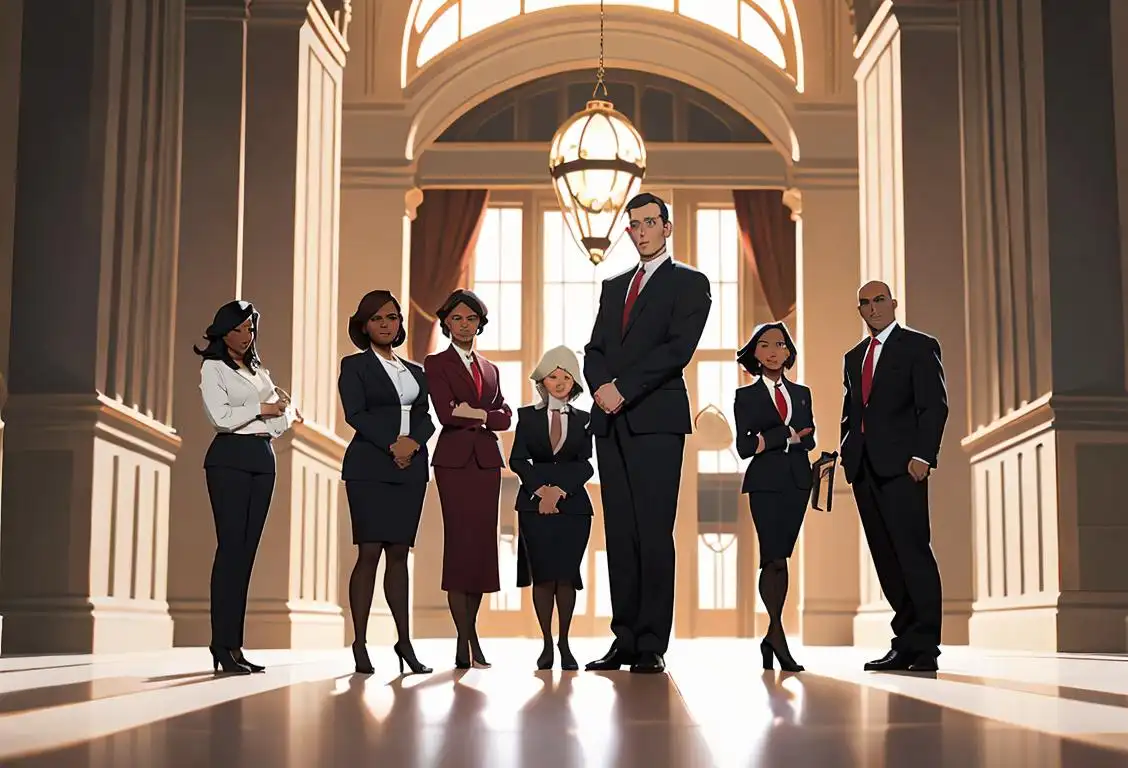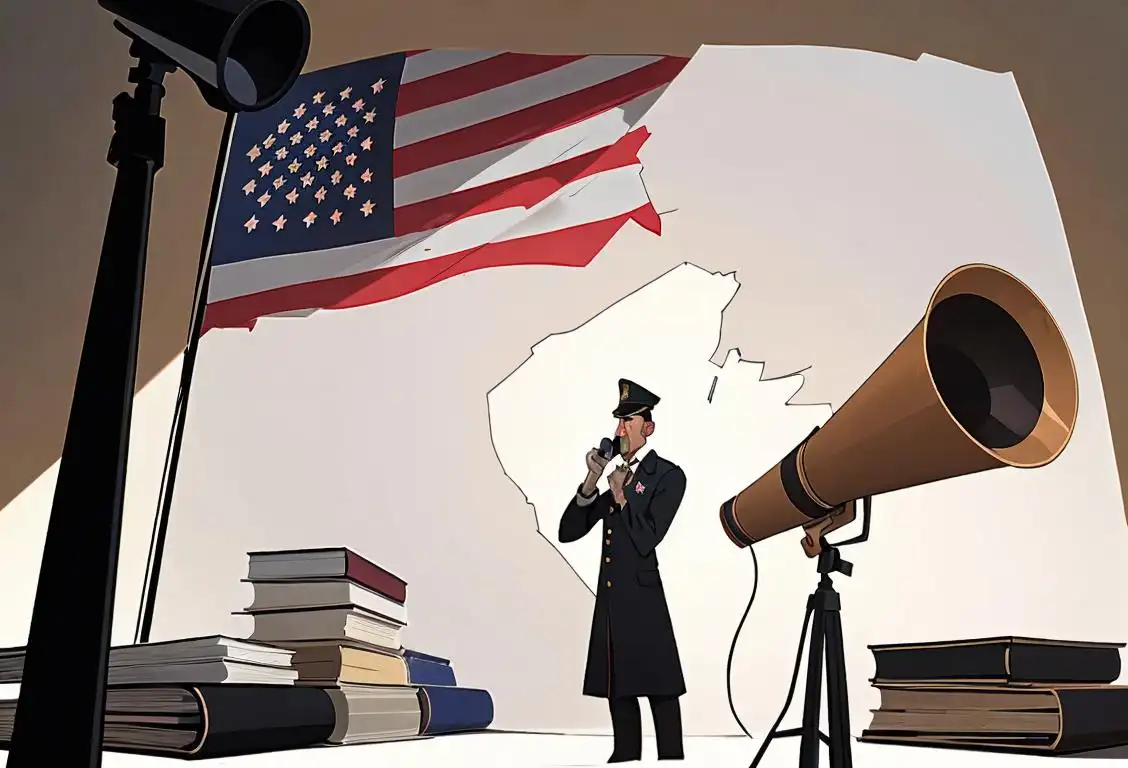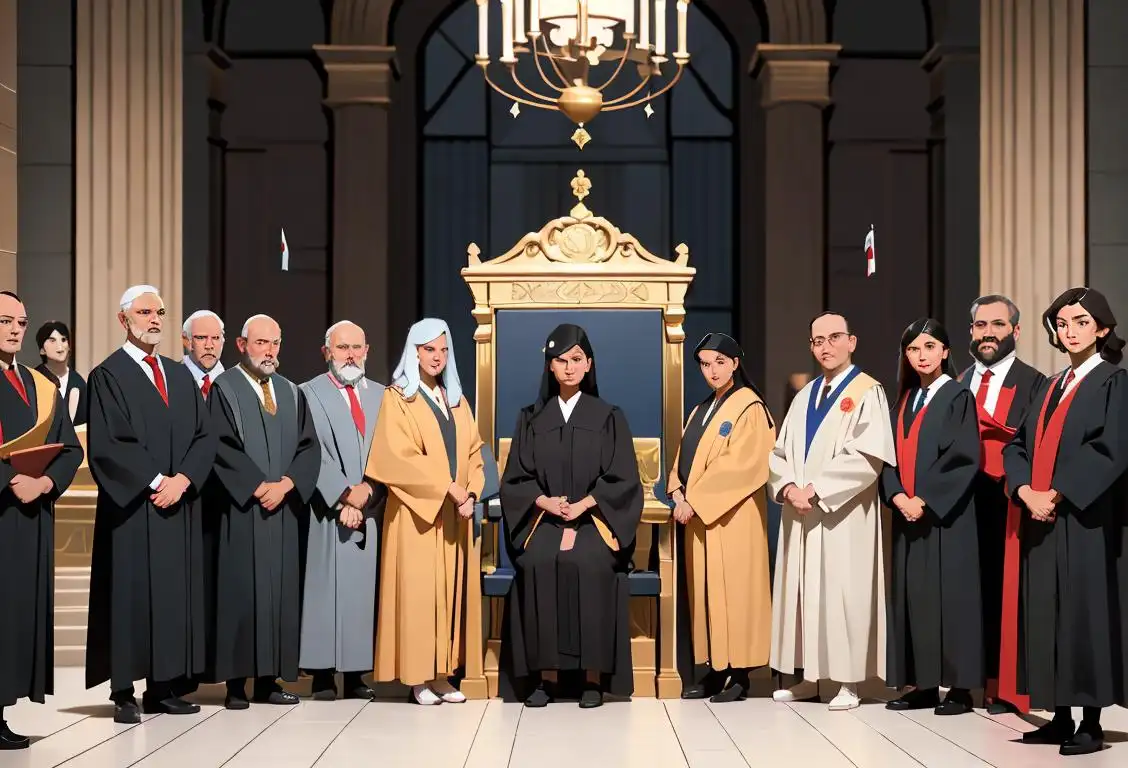National Public Defender Day

Hey there, defenders of justice! Get ready to raise your gavels and don your capes because it's time to celebrate National Public Defender Day!
When is Public Defender Day?
It's national public defender day on the 18th March.
The Origins of National Public Defender Day
On this special day, we honor the hardworking attorneys who provide legal representation to those who can't afford it. The origins of National Public Defender Day can be traced back to the noble mission of ensuring that everyone has access to justice, regardless of their financial situation.
Public defenders play a vital role in the criminal justice system. They protect the rights of the accused, serving as their advocates during trials and helping to navigate the complex legal processes.
In recent years, the internet has played a significant role in raising awareness about the invaluable work of public defenders. It has provided a platform for sharing stories and highlighting the importance of equal representation.
Joining the Celebration
To celebrate National Public Defender Day, you can show your support in various ways. Consider reaching out to your local public defender's office to express your gratitude for their dedication. You could also donate to organizations that provide support and resources to public defenders.
Another way to participate is by raising awareness. Share inspiring stories of public defenders making a difference on social media, using the hashtag #PublicDefenderDay. Together, we can spread the word and show our appreciation for these unsung heroes of justice.
History behind the term 'Public Defender'
1894
Creation of the juvenile court
The term 'public defender' traces its origins back to the creation of the first juvenile court in Chicago, Illinois in 1894. The court was established to address the needs of young offenders and provide them with a fair trial. Recognizing the importance of legal representation for these young individuals, the court appointed attorneys known as 'public defenders' to act on their behalf.
1893
The Birth of the Public Defender Movement
The term 'public defender' originated in the United States in 1893. Clara Shortridge Foltz, a pioneering lawyer from California, is credited with coining the term and spearheading the public defender movement. Foltz recognized the need for legal representation for indigent individuals who couldn't afford their own attorneys. She advocated for the establishment of a public defender office to provide free legal services to those who couldn't afford private counsel.
1890
The Birth of the Term
The term 'public defender' originated in the year 1890. It was first used in the legal system of the United States, specifically in the state of Massachusetts. At that time, the Massachusetts legislature passed a law establishing the country's first public defender office in Boston. This marked the beginning of a new era in providing legal representation for individuals who could not afford to hire a private attorney.
1914
Expanding public defender services
The concept of public defenders expanded beyond the jurisdiction of juvenile courts in 1914. The state of Minnesota became the first to establish a public defender system aimed at providing legal representation to indigent defendants in criminal cases. This marked a significant milestone in the development of public defender services, ensuring that individuals facing criminal charges could receive competent legal assistance.
1938
Spreading Nationwide
In 1938, the concept of public defenders gained significant traction when the first statewide public defender office was established in Connecticut. This paved the way for the expansion of public defense services across the United States. Recognizing the importance of ensuring access to legal representation for all, numerous states began establishing public defender offices in the following years.
1938
Landmark Case: Johnson v. Zerbst
In 1938, the Supreme Court of the United States handed down a significant ruling in the case of Johnson v. Zerbst. This landmark decision solidified the right to counsel for individuals facing prosecution in federal criminal cases. The Court held that the Sixth Amendment guarantees the right to appointed counsel for defendants who face the potential loss of liberty, even in cases involving non-capital offenses. This pivotal decision further elevated the importance of the public defender role in ensuring fair trials.
1963
The Gideon v. Wainwright Supreme Court Case
The year 1963 witnessed a landmark moment in the history of public defenders with the Supreme Court case Gideon v. Wainwright. This case established the right to counsel for indigent defendants charged with serious crimes. Clarence Earl Gideon, a penniless Florida man, was accused of breaking into a poolroom and was denied a lawyer due to lack of funds. The Supreme Court's unanimous decision mandated that states must provide an attorney to defendants who cannot afford one, further solidifying the role of public defenders.
1963
Gideon v. Wainwright and the Right to Counsel
The year 1963 marked another important milestone in the history of public defenders with the Supreme Court case of Gideon v. Wainwright. In this case, the Court went a step further and extended the right to counsel to all individuals facing felony charges in state courts. The Court held that the Fourteenth Amendment guarantees the right to appointed counsel for defendants who can't afford an attorney, ensuring equal access to legal representation. Gideon v. Wainwright greatly expanded the role of public defenders in protecting the rights of the accused.
1938
Landmark Supreme Court decision
In 1938, the United States Supreme Court made a landmark decision in the case of Johnson v. Zerbst. The court ruled that any person facing a potential deprivation of liberty had a constitutional right to legal representation, even if they couldn't afford an attorney. This decision affirmed the principle that public defenders played a crucial role in safeguarding the rights of individuals accused of crimes.
1964
Creation of the Public Defender Service
In 1964, the Public Defender Service for the District of Columbia (PDS) was established, marking the first federally funded public defender organization. The PDS aimed to provide quality legal representation to indigent defendants in the District of Columbia. This groundbreaking initiative became a model for public defender programs across the nation. The creation of the Public Defender Service underlined the growing recognition of the vital role public defenders play in ensuring a fair criminal justice system.
1964
The Office for Defender Services
In 1964, the federal government recognized the importance of public defenders and established the Administrative Office for United States Courts' Office for Defender Services. This office provides training and support to federal public defenders across the country, ensuring the highest standards of representation for indigent defendants in federal cases.
1963
Gideon v. Wainwright
A major turning point for the public defender system occurred in 1963 with the Supreme Court case of Gideon v. Wainwright. The court unanimously held that state courts were required to provide legal counsel to defendants who couldn't afford to hire an attorney. This ruling ensured the right to counsel for all individuals accused of serious crimes, further solidifying the role of public defenders in the criminal justice system.
1970
Sixth Amendment Right
In 1970, the Sixth Amendment Center was established to ensure that the constitutional right to counsel outlined in the Sixth Amendment was protected. The center's mission includes advocating for adequate funding and resources for public defenders, monitoring defense services, and promoting reforms to improve the quality of representation provided.
1964
Warren Court's support
During the 1960s, the Warren Court, led by Chief Justice Earl Warren, played a significant role in strengthening the role and influence of public defenders. The court's decisions expanded the rights of defendants and emphasized the importance of effective legal representation. The Warren Court's support paved the way for increased funding and recognition of the vital work performed by public defenders nationwide.
1970
Sixth Amendment Right to Counsel
The Sixth Amendment to the United States Constitution solidified the right to counsel for all individuals facing criminal charges. This constitutional provision not only reinforced the significance of public defenders but also emphasized the fundamental fairness of the criminal justice system. The right to counsel ensures that every accused person, regardless of their financial means, has access to legal representation to protect their rights and receive a fair trial.
1970
National Legal Aid and Defender Association
In 1970, the National Legal Aid and Defender Association (NLADA) was formed. This organization played a crucial role in advocating for the rights of the accused and promoting access to quality legal representation for all individuals, regardless of their financial means. The NLADA continues to be an influential force in shaping public defender services and ensuring the fair administration of justice.
Did you know?
Did you know that the concept of public defenders dates back to ancient Greece? The Greeks believed that every citizen should have the right to legal representation, regardless of their wealth or social status. Talk about a timeless idea!Tagged
awareness justiceFirst identified
10th February 2016Most mentioned on
18th March 2020Total mentions
320Other days
Mamas Bail Out Day
Message On Human Rights Day
Peace Officer Memorial Day
Public Defender Day
Bail Out To Help Their Efforts In Bailing Out Black Mamas For Mothers Day
Black Mamas Bail Out Day
Law Day
Whistleblower Day
Human Rights Day
Justice Day







